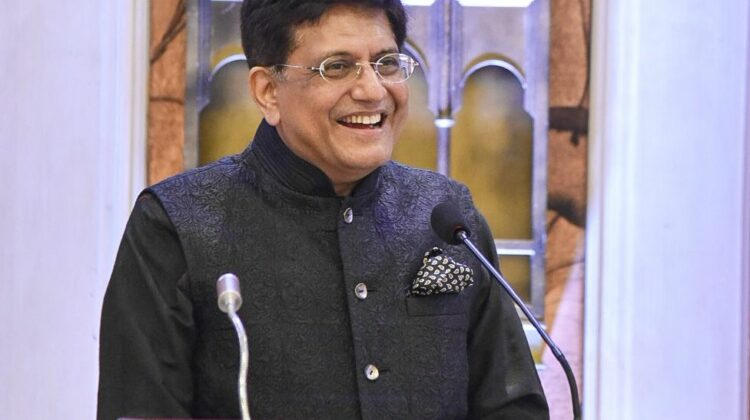
‘India aims at $101 billion capital goods manufacturing by 2025’: Piyush Goyal

NEW DELHI : The national capital goods policy aims to increase domestic capital goods manufacturing output to $101 billion by 2025, a 225% jump from $31 billion in 2014-15, which will also help the Indian textiles machinery sector to become a global player, Commerce and Industry and Textiles Minister Piyush Goyal said on Sunday while interacting with textile machinery manufacturers in a video conference.
The minister asked various arms of the government – textiles, heavy industries and digital innovation – to synergize and help the sector gain technical efficiency and become cost-competitive across the manufacturing value chain.
The National Capital Goods Policy was approved by the cabinet in May 2016. The policy plans to ramp up capital goods production capacity from ₹2.3 lakh crore in 2014-15 to ₹7.5 lakh crore in 2025 and raise employment in the sector from 84 lakh to 3 crores. It addresses issues such as availability of finance, raw material, innovation and technology, productivity, quality and environment-friendly manufacturing practices, promoting exports and creating domestic demand.
“The objectives of the policy will be met by the Department of Heavy Industry in a time-bound manner through obtaining approval for schemes as per the roadmap of policy interventions,” a government statement issued in May 2016 after the cabinet meeting said.
Goyal urged the textile industry to focus on “speed, skill and scale” and set a target for developing 100 textile machinery champions. Textile machinery manufacturers should get out of a “command-and-control mindset” and work through “plug and play” to make the textile sector vibrant, a textile ministry statement said quoting Goyal.
“India should be looking to become a global player in producing textiles machinery, producing at scale, producing with quality and quantity the machinery of choice that the world requires,” it said quoting the minister.
Goyal said India is “not averse to imports” but it must reduce import dependency of the textile machinery by concerted effort between the textile engineering industry and government. Focus on quality will help capture bigger markets and higher productivity, he added.
A modern and upgraded textile machinery ecosystem would have a cascading impact on the unorganised Indian textile industry. This would set the momentum for continuous advancement and innovation resulting in ever-evolving and enhancing competitive capabilities along the value chain, he said.
Referring to India’s recent achievement of 100 crore vaccines, the minister said that the historic achievement was the result of a collective effort of 130 crore Indians and a proof of India’s ‘Atmanirbharta’. He also cited the example of Mission Chandrayan, a breakthrough in India’s space programme and asked textile machinery manufacturers to make similar efforts.
Goyal said India is on a mission of transformational change and the government has set a target of $100 billion for textiles and garment exports over the next five years. Indian Textile Engineering Industry (TEI) is at the cornerstone of moving up the manufacturing excellence wherein the domestic R&D, entrepreneurial spirit and exploration of Joint Ventures have ushered in new opportunities.


